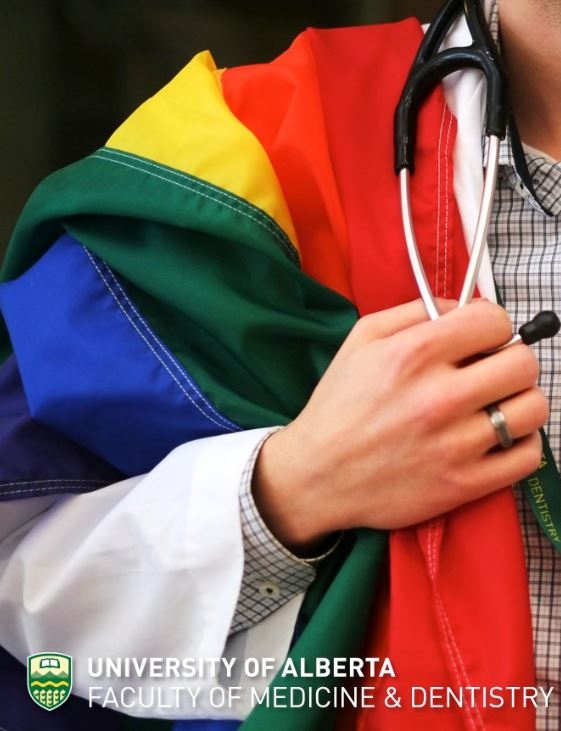
A group of students in the Faculty of Medicine & Dentistry at the University of Alberta is making great strides in breaking down barriers for sexual minorities.
On May 3, the first Inclusive Health Conference, the brainchild of Anthony Lott, MD class of 2014 and organized by the Sexual Orientation & Gender Identity Advocacy Committee in FoMD, was held on campus.
Open to medical students, residents, physicians and the community at large, the focus of the conference was on educating, informing and empowering those who work with and treat members of the LGBTQ community.
"Knowledge is power, and we are raising awareness of the influence of sexual and gender identity on health," said Lott before the conference, which saw more than 50 participants. "I hope that attendees will reflect back on the personal stories and expert presentations shared at the Inclusive Health Conference, and consider how they can make their practice a bit more inclusive to all."
The one-day conference, said Lott, had a short-term goal of educating health-care practitioners on LGBTQ issues, with the long-term expectation of improving health-care outcomes for LGBTQ patients. While this goal may seem ambitious, Douglas Miller, dean of the Faculty of Medicine & Dentistry, says this conference is a partnership between the faculty and its members that reflects the faculty's priority of respecting the "rich diversity of individuals, each with distinct health concerns."
"In addition to providing knowledgeable care, physicians are tasked with combating societal stigmatization against LGBTQ individuals," said Miller at the conference. "The respectful treatment of patients and their families in all care settings, regardless of sexual orientation or gender identity, is absolutely critical in the pursuit of this goal. Yet, without the deliberate recognition of the existence of this systemic stigmatization, we cannot hope to cultivate culturally competent care providers."
Equal in focus on providing sensitive and thoughtful health care to LGBTQ patients, says conference co-organizer Ian Armstrong, MD class of 2016, is recognizing the strengths that LGBTQ physicians and health-care allied workers can contribute to a meaningful dialogue.
"We hope that the conference's success will make current LGBTQ medical students and physicians feel valued, and provide a starting point for mentorship and support," he said.
"Although the conference's main focus is on providing care to LGBTQ patients, our keynote speaker and physicians' panel will be discussing the culture of medicine as it's experienced by LGBTQ physicians and learners. Our hope is that dialogue about attitudes towards LGBTQ people will not only improve patient care, but will also stimulate reflection at a more personal level on how respectful and LGBTQ-friendly our training and work environments really are, and what we can do to improve them."
"This was an excellent opportunity for the Faculty of Medicine & Dentistry to provide more information and education for medical students, residents, fellows, physicians and surgeons related to GLBT health issues while engaging the GLBT community in the process," said Keith Andony, education co-ordinator with Alberta Health Services, who attended the conference. "I look forward to seeing how the faculty will continue to develop the Inclusive Health Conference in future years and continue to work with stakeholders."